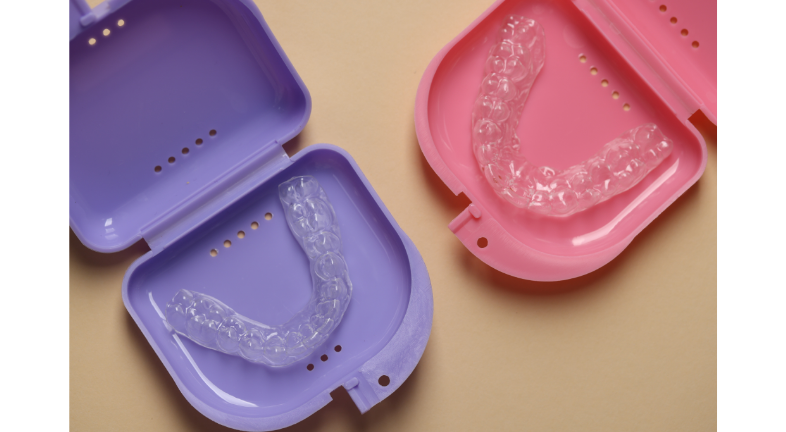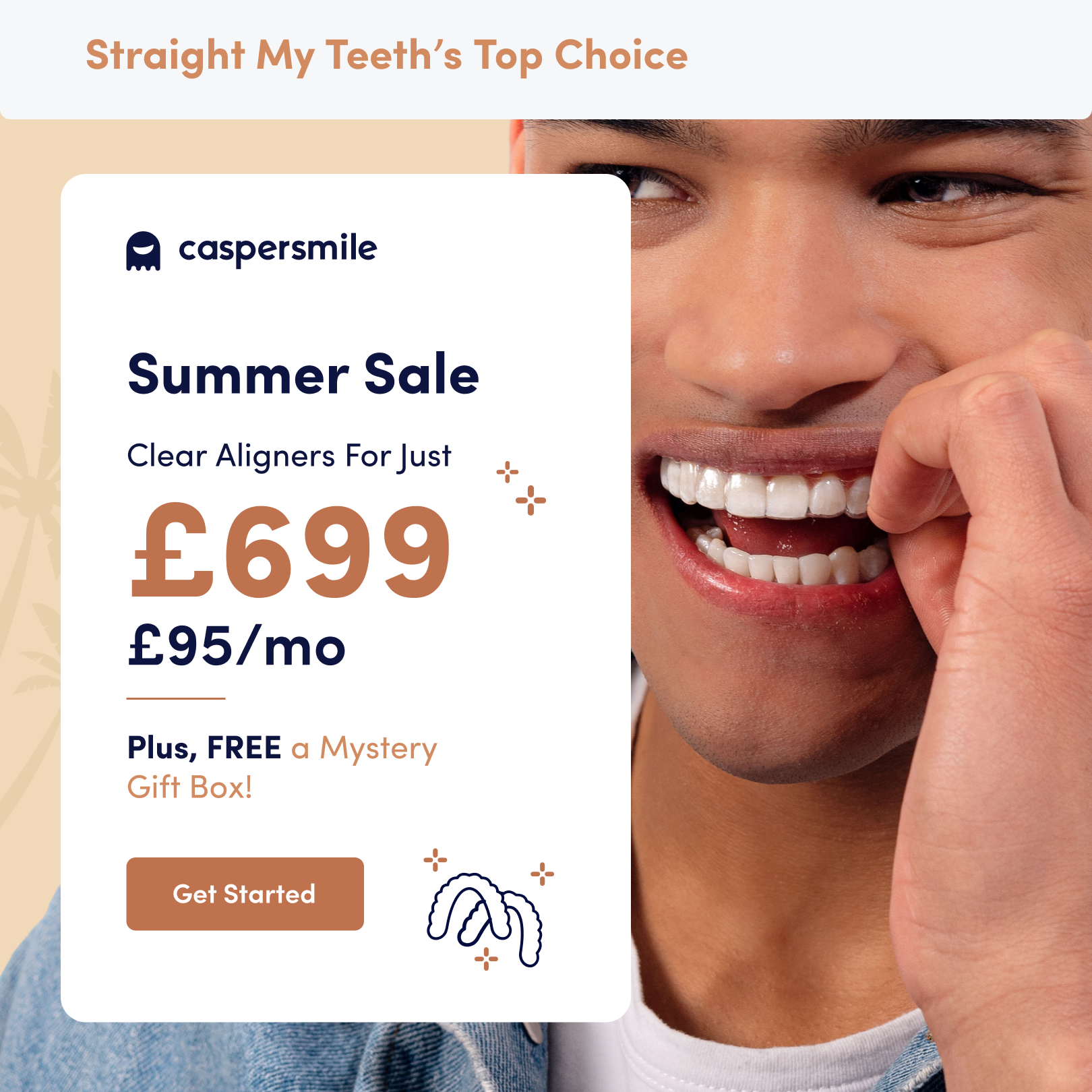
Table of Content
Remember when your teachers used to tell you off for chewing gum? Well, little did they know that it is actually good for you? Turns out, chewing gum actually has a host of health benefits, not only for your teeth but for your overall health too.
Studies have shown that chewing sugar-free gum can:
That’s not bad for a humble packet of chewing gum that costs less than £1. One of the greatest benefits of chewing gum is fantastic effects on your oral health. So, as well as remembering to brush, floss and visit the dentist, here’s why chewing gum is also your secret weapon to a healthy mouth.
The secret to a healthy mouth and bright smile is a scrupulous oral health routine. You should aim to brush your teeth twice again, floss once a day and use a quality mouth wash (though not directly after you brush). You should also visit your dentist every six months too.
If you’re thinking of the sugar-filled bubble gum you used to have as a kid. Think again. The best chewing gum for your teeth is the sugar-free variety. Not only will your teeth thank you for it, you’ll have minty fresh breath too.
The good news is that almost everyone can use chewing gum. There are many different formulations out there, so if you’re sensitive to a particular ingredient, you can usually find an alternative.
People with traditional, wired braces are advised to stay away from chewing gum as it can cause problems. The good news is, if you’re using invisible aligners to straighten your teeth, then you can still use gum as part of your dental care routine, simply remove them while you’re chewing gum and then replace.
To get the full benefits of chewing gum, you need to use it soon after finishing a meal. By doing this, you’ll stimulate the saliva in your mouth which will wash away food debris and neutralize sugar acids which can attack your tooth enamel.
You don’t need to chew it all day long to get the benefits either. Chewing for 20 minutes after a meal is more than enough time to get the benefits without the jaw ache.
A dry mouth is no fun and saliva plays a huge role in your oral health. Not only does it help you digest food, but it also fights germs, prevents bad breath and helps keep your teeth clean.
Dry mouth can be caused by a number of things including health conditions, certain medications or breathing through your mouth. It’s usually nothing to worry about and can be treated by keeping hydrated, chewing gum, or in severe cases, using synthetic saliva. Persistent dryness can lead to a condition called xerostomia which can lead to the swelling of your gums and tongue.
Too little saliva can also spell trouble for your teeth too. Not only can it cause bad breath, but it also raises your risk of tooth decay, dental erosion and periodontal disease, which is the leading cause of tooth loss in adults in the developed world.
Modern diets are high in sugar, which is terrible for our teeth enamel. It’s not just fizzy drinks and sweets to blame either. Too much fruit can also have the same effect. Chewing sugar-free gum after eating stimulates saliva which counteracts the acids in the sugar and prevents it from damaging your precious enamel.
Having bad breath can really affect your confidence. A good oral hygiene routine and regular visit to the dentist is the best way to prevent bad breath. However, chewing gum can also help you with this. Not only will it give you a quick hit of minty freshness, but the saliva it produces also ensures that any particles of food are removed from around your mouth. If left, these can begin to smell and cause bad breath. You’re not always able to brush your teeth but you can pop a piece of chewing gum in.
The secret to a healthy mouth and bright smile is a scrupulous oral health routine. You should aim to brush your teeth twice again, floss once a day and use a quality mouth wash (though not directly after you brush). You should also visit your dentist every six months too.
If you’re thinking of the sugar-filled bubble gum you used to have as a kid. Think again. The best chewing gum for your teeth is the sugar-free variety. Not only will your teeth thank you for it, you’ll have minty fresh breath too.
The good news is that almost everyone can use chewing gum. There are many different formulations out there, so if you’re sensitive to a particular ingredient, you can usually find an alternative.
People with traditional, wired braces are advised to stay away from chewing gum as it can cause problems. The good news is, if you’re using invisible aligners to straighten your teeth, then you can still use gum as part of your dental care routine, simply remove them while you’re chewing gum and then replace.
To get the full benefits of chewing gum, you need to use it soon after finishing a meal. By doing this, you’ll stimulate the saliva in your mouth which will wash away food debris and neutralize sugar acids which can attack your tooth enamel.
You don’t need to chew it all day long to get the benefits either. Chewing for 20 minutes after a meal is more than enough time to get the benefits without the jaw ache.
Having bad breath can really affect your confidence. A good oral hygiene routine and regular visit to the dentist is the best way to prevent bad breath. However, chewing gum can also help you with this. Not only will it give you a quick hit of minty freshness, but the saliva it produces also ensures that any particles of food are removed from around your mouth. If left, these can begin to smell and cause bad breath. You’re not always able to brush your teeth but you can pop a piece of chewing gum in.
Curated the best for your knowledge
.webp) Does Insurance Cover Night Guards in the UK?
Does Insurance Cover Night Guards in the UK?Night guards are commonly recommended for people who grind or clench their teeth, suffer from jaw pain, or show signs of enamel wear. If you’ve been advised to wear one, the next question is often financial rather than clinical: are night guards covered by insurance in the UK?
Read More%20(1).webp) Signs Your Athletic Mouth Guard is a Good Fit
Signs Your Athletic Mouth Guard is a Good FitWhen you step onto the field, court, or mat, your focus should be on performance, not on whether your mouth guard will slip, hurt, or distract you. An athletic mouth guard is more than a piece of sports equipment. It is a protective barrier between confidence and injury. Yet many athletes wear mouth guards that do not fit properly and never realize the risk they are taking. A well-fitted mouth guard protects your teeth, jaw, and even your brain from impact-related injuries. This guide walks you through every clear sign that your mouth guard fits the way it should. By the end, you will know exactly what to look for and why proper fit matters more than most athletes think.
Read More Top 5 Clear Aligner & Retainer Cleaners: Keep Your Smile Fresh
Top 5 Clear Aligner & Retainer Cleaners: Keep Your Smile Fresh Clear aligners and retainers are designed to improve your smile quietly and comfortably. But because they sit tightly against your teeth for hours every day, they also collect saliva, plaque, bacteria, and food residue. Without proper care, that buildup can lead to bad breath, cloudiness, stains, or even gum irritation. Cleaning your aligners and retainers isn’t just about appearance. It’s about hygiene, comfort, and protecting the progress you’ve already made. The good news is to take care of clear aligners you don’t require complicated tools or expensive products. What matters most is choosing the right aligner cleaner and sticking to a routine that fits your lifestyle. This guide breaks down the top 5 clear aligner and retainer cleaners, explains why they work, and shows you how to use them properly so your trays stay clear, fresh, and comfortable from day one to the last.
Read MoreQuick Links

Heading